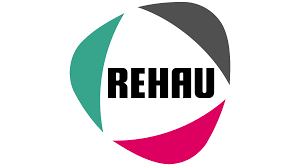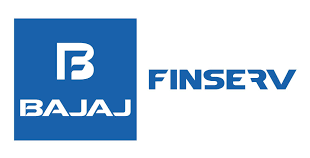- 91% of Indian organizations expects AI to transform roles within 12 months; AI investment up 37% year-on-year
- Yet, 75% of Indian organizations (vs 57% global) admit that their innovation efforts stall after proof-of-concept
- 63% of Indian organizations feel the pressure to prove ROI of their AI investment
Bangalore, November 6, 2025 — Kyndryl (NYSE: KD), a leading provider of mission-critical enterprise services, today released the India insights of its second annual Readiness Report, that drew on responses from 3,700 senior leaders across 21 countries. The data reveals a tipping point in India’s AI journey: organizations are increasing their AI investments while facing pressure to modernize infrastructure, scale innovation, reskill workforces, and navigate a fragmented regulatory landscape.
“A readiness gap exists as enterprises grapple with the promise of transformative value from AI,” said Martin Schroeter, Chairman and CEO of Kyndryl. “While 90% of organizations globally think they have the tools and processes to scale innovation, more than half are stalled by their tech stack, and less than a third say their employees are truly ready for AI. Closing that gap is the challenge and opportunity ahead.”
India stands out in the speed and scale of its AI transformation, with 91% of organizations expecting AI to fully transform roles within a year. AI investment has risen 37% year-on-year, reflecting confidence in leading the next wave of digital disruption. Yet, 63% of organizations feel pressure to prove AI’s ROI, signaling a shift from experimentation to accountability as AI embeds into core business strategies.
“India’s enterprises expect AI to have a transformational impact on their businesses yet struggles with adoption. With a clear shift in focus from experimentation to accountability, we are seeing an innovation paradox – the intent to innovate is strong, but the ability to scale and sustain remains a hurdle. Organizations must address this execution gap by investing in robust technology foundations, fostering cross-functional collaboration, and embedding accountability into every stage of the innovation lifecycle,” said Lingraju Sawkar, President, Kyndryl India.
- ROI under pressure with AI stuck in experimentation phase: 63% of Indian organizations feel pressured to prove AI’s return on investment, while 75% (vs 57% global) admit that their innovation efforts stall after proof-of-concept. As AI begins to embed in core business strategies, a clear shift can be witnessed from experimentation to accountability.
- Execution and Infrastructure challenges: 69% (vs 57% global) cite foundational technology issues as major roadblocks, highlighting a critical gap: the infrastructure and processes required to support innovation are not evolving as quickly as the strategy guiding them.
- Geopolitical pressures forcing a data pivot: Across the world, organizations are now reevaluating where and how their data is stored, processed, accessed, and secured amid an increasingly fragmented regulatory landscape. In India, 81% express concern over geopolitical risks in cloud data storage and 55% (vs 44% global) are re-evaluating data governance frameworks.
- AI driving workforce transformation, but skills gaps remain: AI adoption is accelerating faster than organizations can adapt, with 51% of Indian leaders concerned about technology skills, 42% about cognitive skills, and 43% about reskilling.
- Cyber resilience top of mind: 88% of Indian organizations have experienced a cyber-related outage. Importantly, only 35% consider themselves “completely ready” for future risks.
Cloud is under pressure as geopolitical and regulatory disruption drive change
Many organizations are also revisiting their cloud infrastructure, prompted by new global regulations and growing concerns about data sovereignty. While 62% leaders in India admit struggling to keep up with technological change, nearly all (99%) would change something about their cloud implementation.
Translating readiness into value
India’s technology sector is seeing strong investments in artificial intelligence and digital transformation. The future of its digital economy will depend not only on speed, but on how effectively organizations scale innovation, align technology with business priorities, and deliver measurable outcomes. The Kyndryl Readiness Report 2025 reveals foundational technology gaps, data governance complexities, cyber resilience pressures, and workforce readiness challenges that continue to test execution.
Talent & Culture – the next readiness frontier
Globally, as leaders look to scale innovation, people readiness is emerging as a key barrier and a key opportunity. While nearly 9 in 10 global leaders believe AI will completely reshape jobs in the next year, only 29% feel their workforce is ready to successfully leverage the technology and concerns remain around the skills needed to succeed in this era. Many organizations are also battling cultural barriers – with nearly half of global CEOs reporting their organization stifles innovation (48%) and moves too slowly in decision making (45%). Those pulling ahead — dubbed “Pacesetters” in the report — aren’t just investing in innovation. They are uniquely prioritizing culture, upskilling, and leadership alignment.
Compared to global organizations who are lagging in these areas, Pacesetters are:
- 32 points less likely to cite their tech stack as a barrier
- 30 points more likely to say their cloud can adapt to new regulations
- 20 points less likely to report a cyber-related outage in the past year
To read the full report, visit Kyndryl’s 2025 Readiness Report.
Methodology
The 2025 Kyndryl Readiness Report combines survey data from 3,700 senior leaders and decision-makers across 21 countries with insights from Kyndryl Bridge, the company’s AI-powered, open integration digital business platform. The Report uncovers the drivers, barriers, and trade-offs that can make or break the ability of organizations to protect, sustain and accelerate their performance and future-proof their mission critical processes.
 Newspatrolling.com News cum Content Syndication Portal Online
Newspatrolling.com News cum Content Syndication Portal Online






